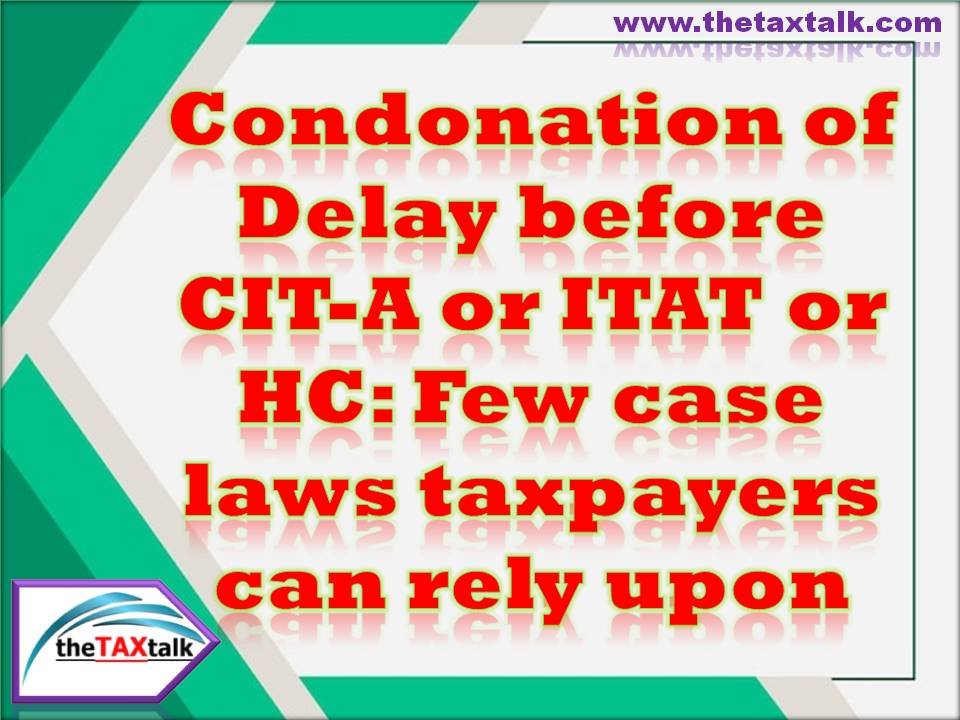![]()
Condonation of Delay before CIT-A or ITAT or HC: Few case laws taxpayers can rely upon
In tax litigation, delays are sometimes inevitable-files may get misplaced, clients may be slow to respond, or procedural confusion may arise. Fortunately, the law does not always shut the door on a delayed appeal. The Income-tax Act, 1961 provides relief where there is “sufficient cause” for delay.
Typical grounds accepted by courts and appellate authorities include:
– Illness of the appellant or counsel
– Misplacement of files or administrative oversight
– Procedural or inadvertent errors
– A bona fide misunderstanding of legal provisions
Whether the appeal is before the CIT(A) under Section 249(3), the ITAT under Section 253(5), or the High Court under Section 260A(2A), authorities are empowered to condone delay and decide the matter on merits-provided the explanation is fair and credible.
Judicial Principles Supporting Delay Condonation
Indian courts have consistently held that substantial justice must not be sacrificed at the altar of procedural technicalities. A liberal yet principled approach to delay condonation has emerged from several landmark rulings:
– Collector, Land Acquisition v. Katiji, 1987 AIR 1353 (SC)
“When substantial justice and technical considerations are pitted against each other, cause of substantial justice deserves to be preferred.”
– N. Balakrishnan v. M. Krishnamurthy, AIR 1998 SC 3222
Delay should be condoned if it is not due to deliberate inaction or mala fides.
– State of Haryana v. Chandra Mani, (1996) 3 SCC 132
Courts should avoid a rigid approach and condone delay if the party has acted bona fide.
– Improvement Trust, Ludhiana v. Ujagar Singh, (2010) 6 SCC 786
Emphasized that the focus should be on the explanation’s genuineness rather than the length of delay.
– Ram Nath Sao v. Gobardhan Sao, AIR 2002 SC 1201
Even a substantial delay can be condoned if the cause shown is reasonable and convincing.
These are not just legal precedents-they are practical tools for professionals dealing with delayed appeals. A well-crafted application for condonation, supported by affidavits, a clear chronology, and a bona fide explanation, can ensure that a matter is heard rather than dismissed on threshold grounds.
Courts have repeatedly affirmed that while each day of delay must be explained, the overall conduct of the appellant and the merits of the case are equally important.
At the intersection of tax procedure and equity lies a fundamental principle: Procedural delay should not defeat substantive justice.


